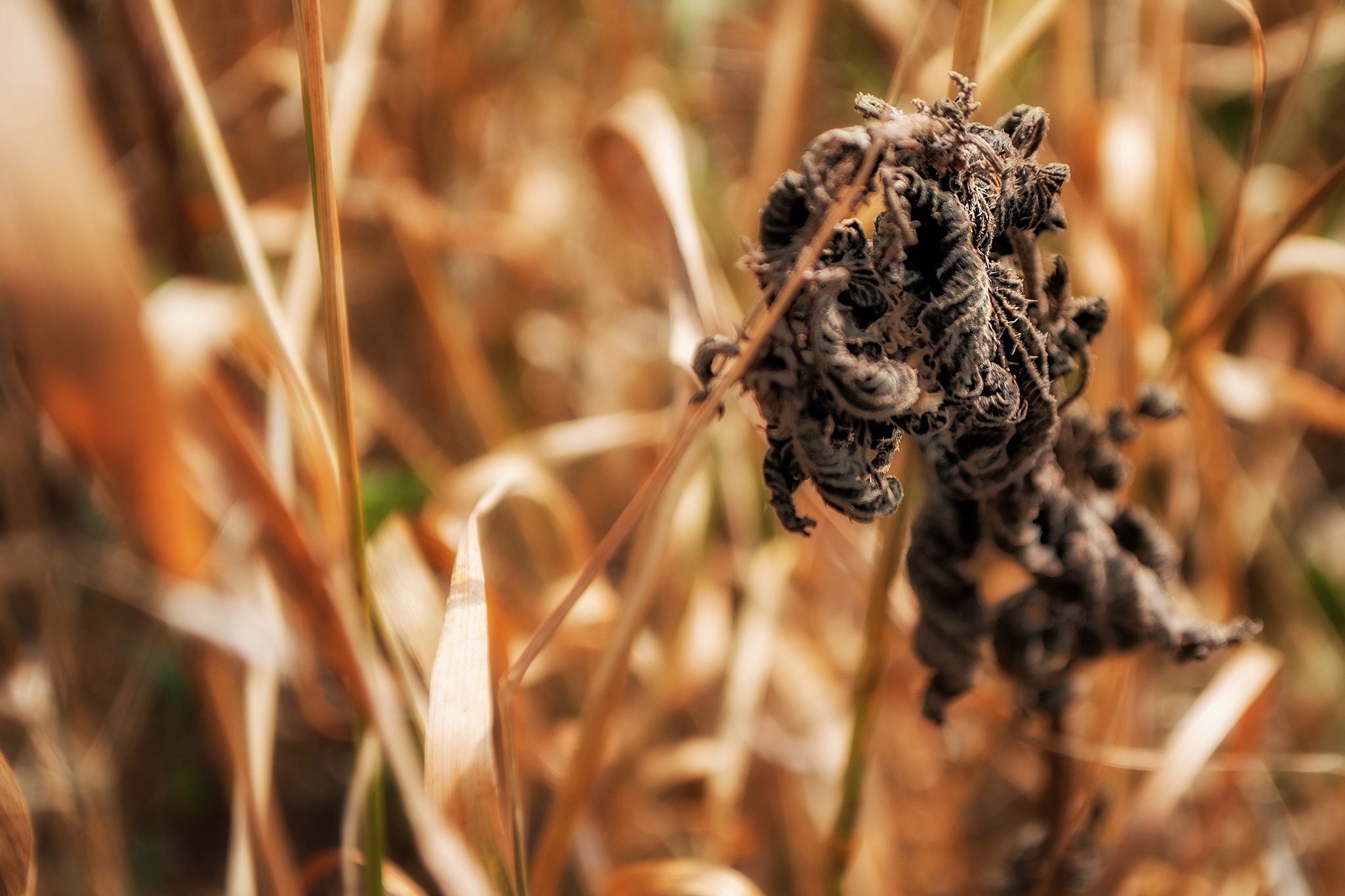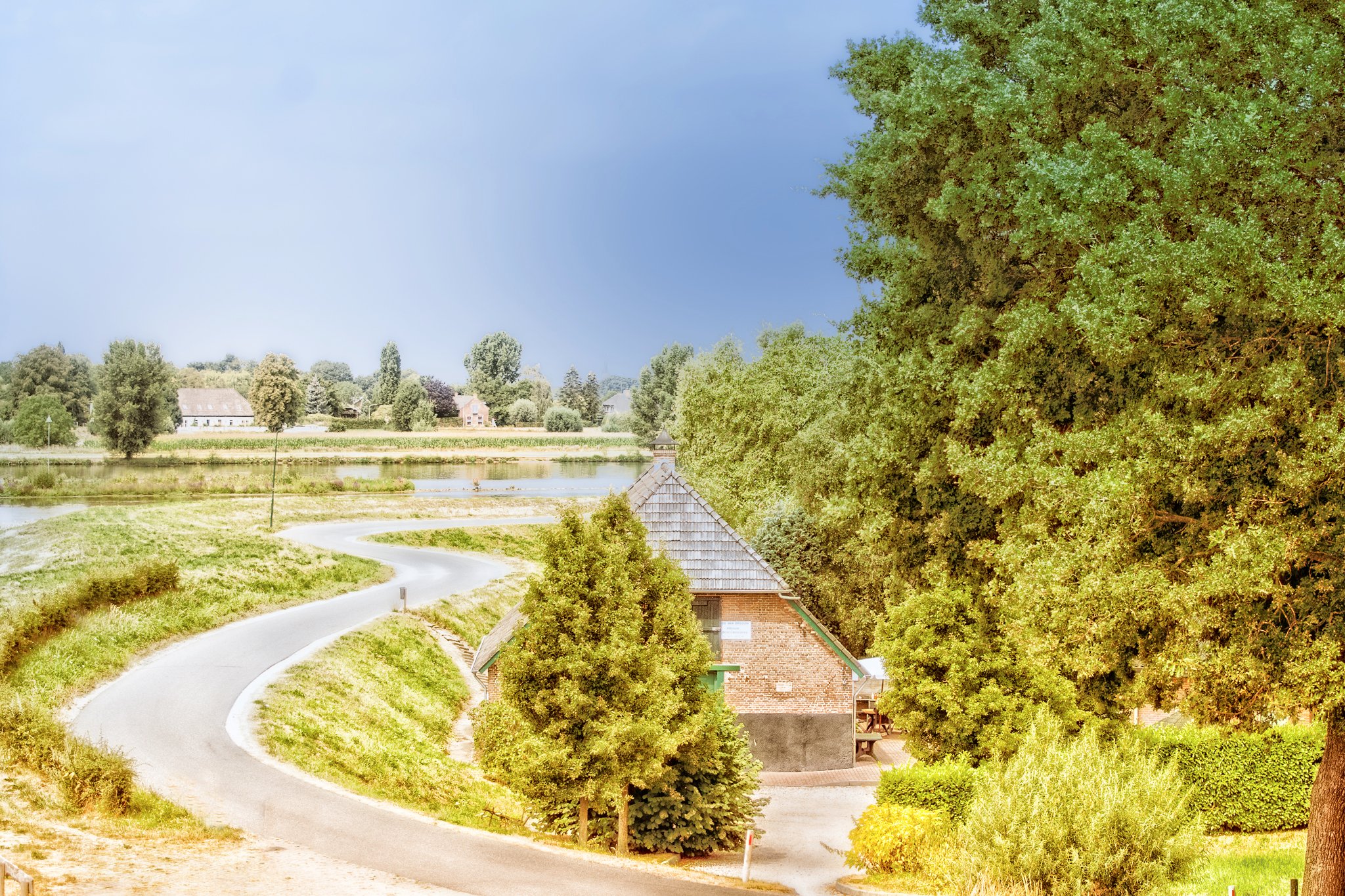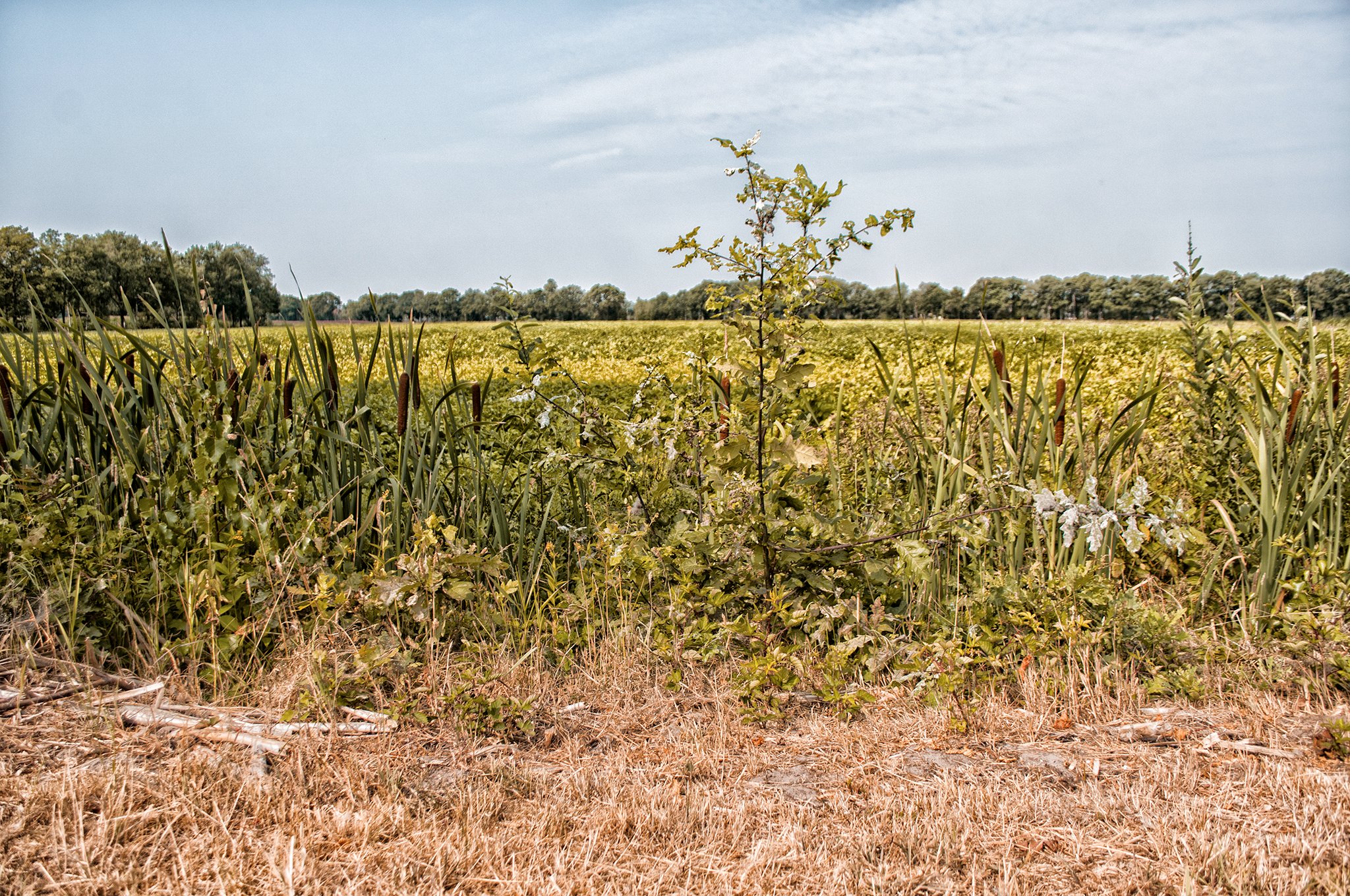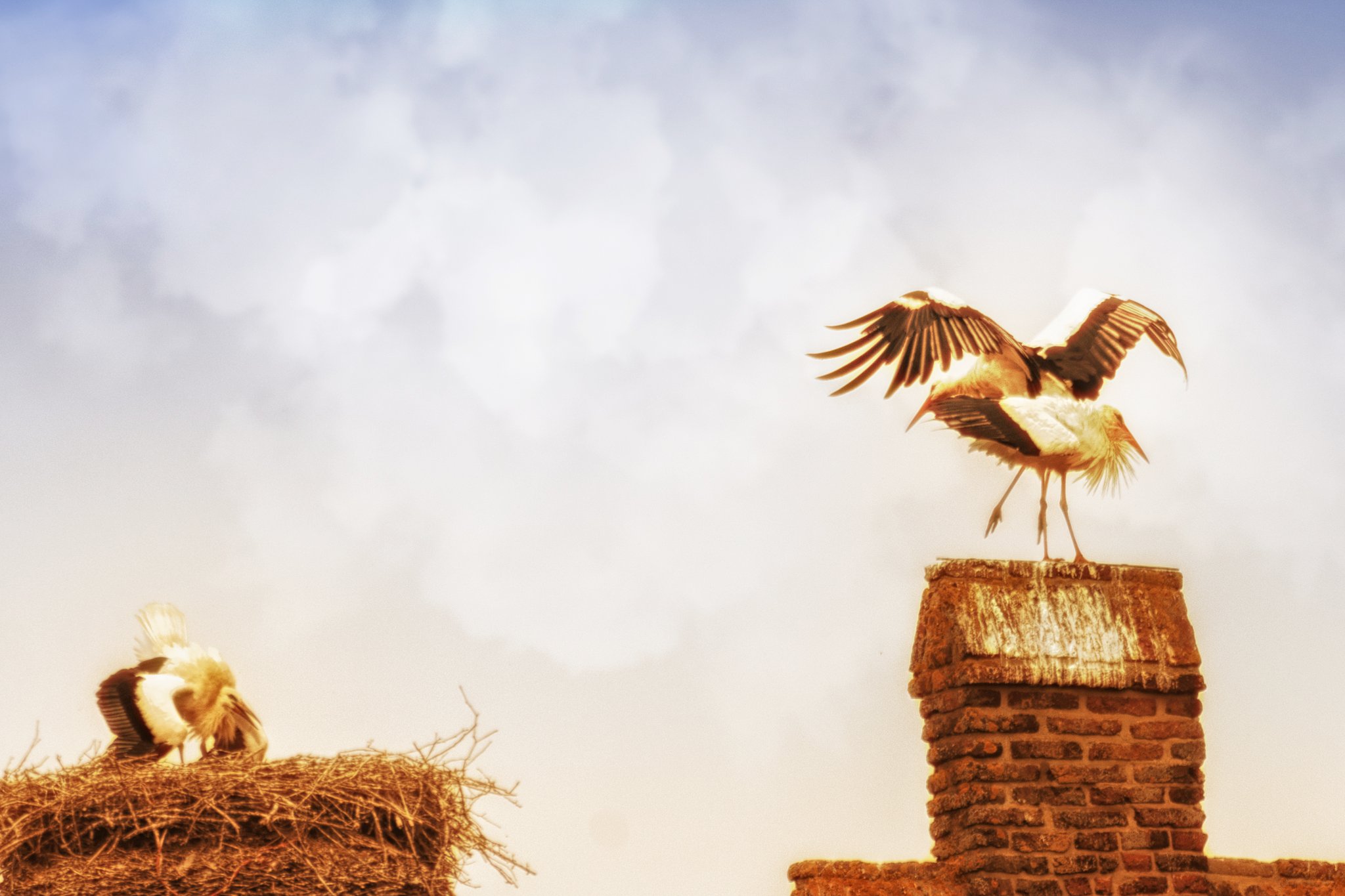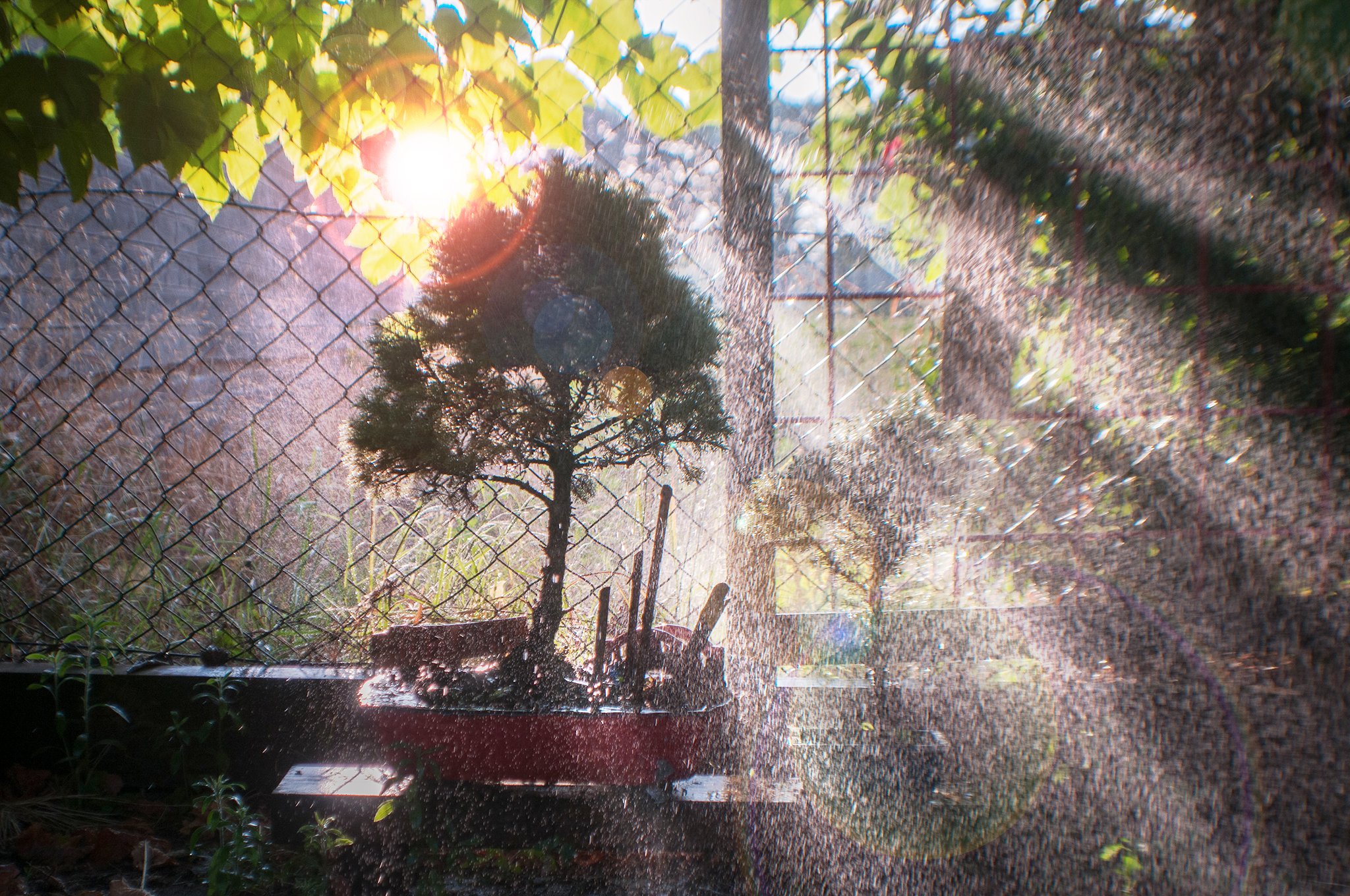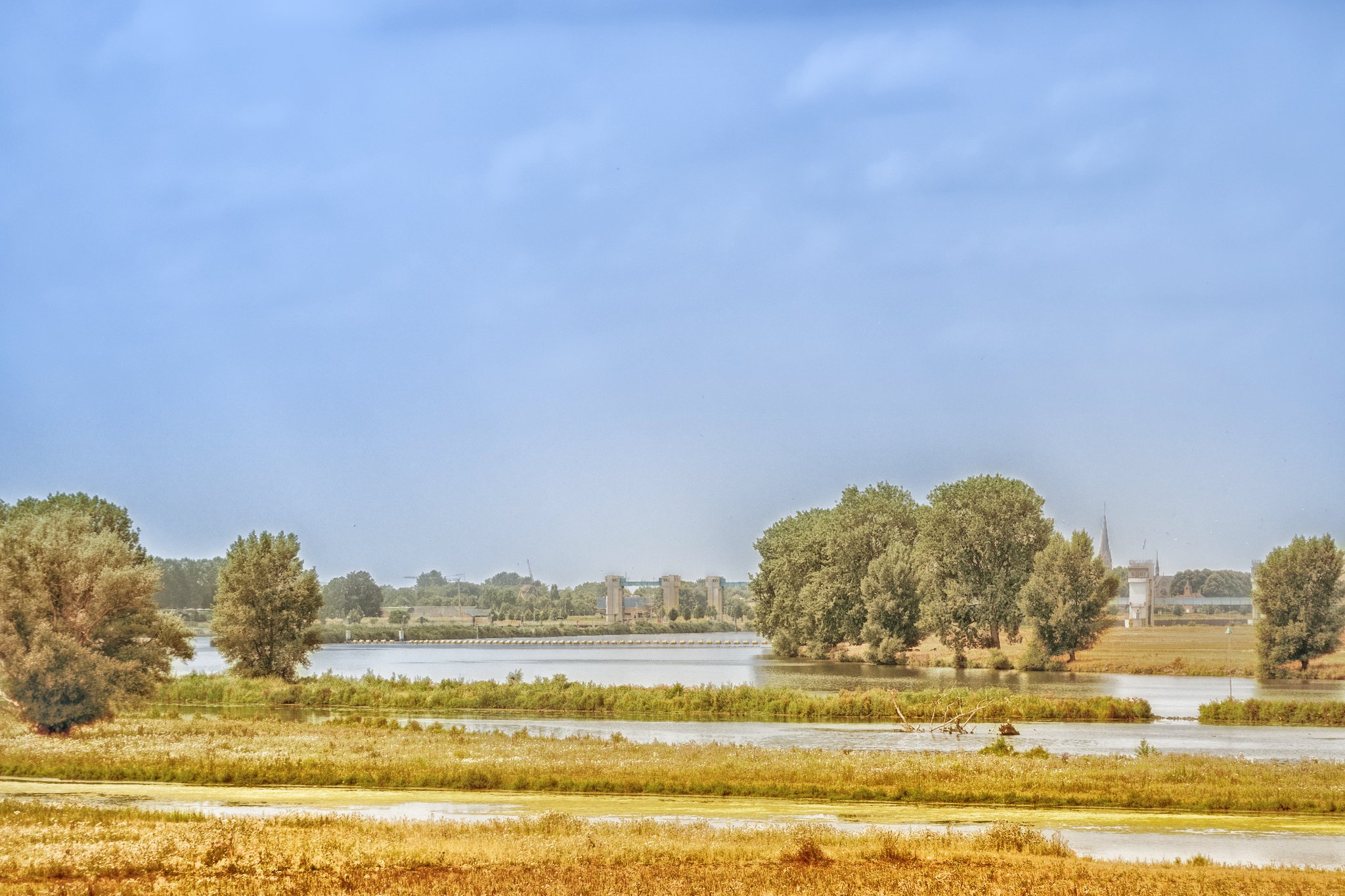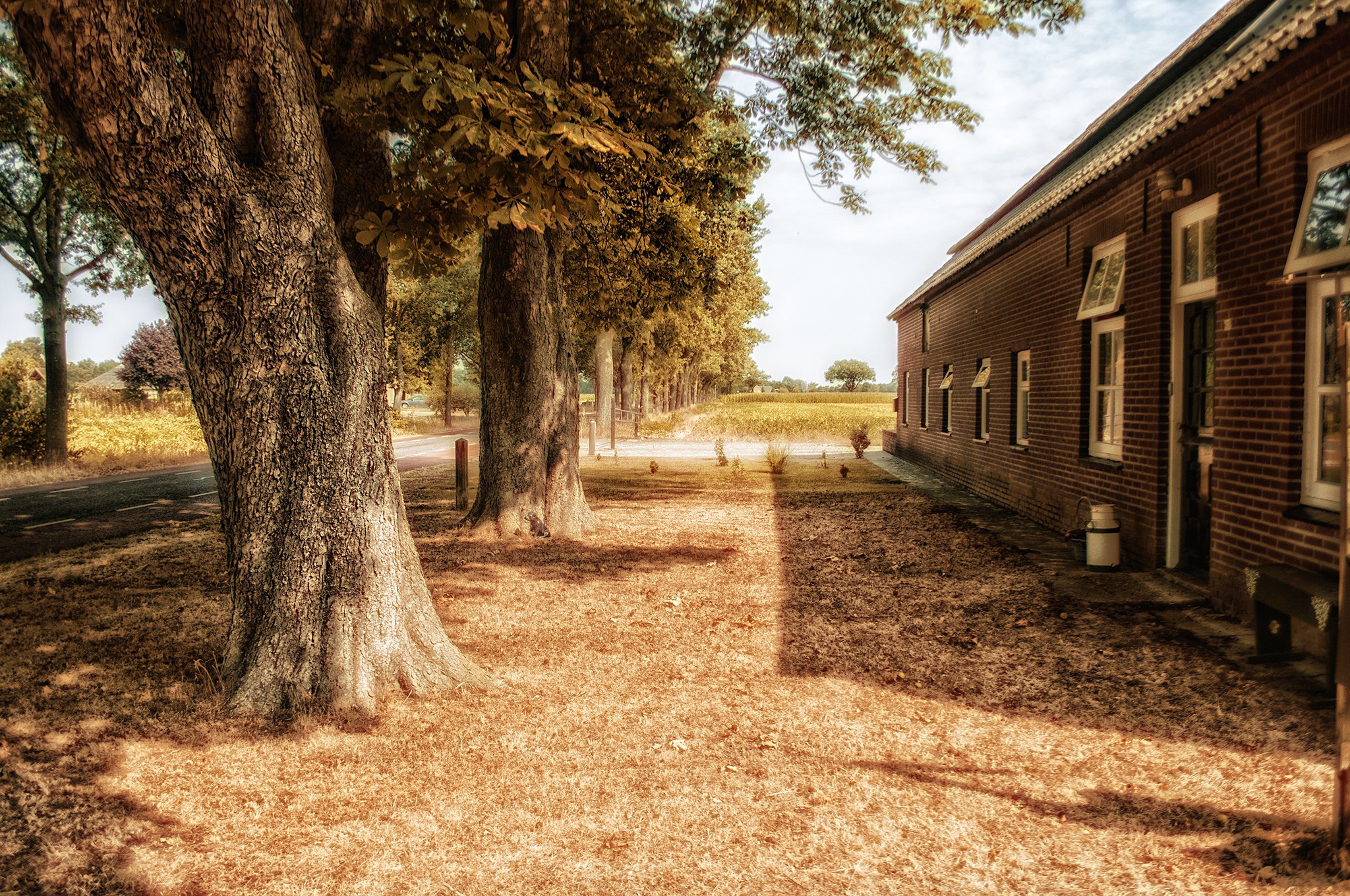Large parts of Europe are struggling with extremely high temperatures.
And in the Netherlands it is not only extremely hot, but also extremely dry. I do not know what the rest of Europe is in terms of drought ... but in the Netherlands it is dry, extremely dry. There is currently a precipitation deficit of 256 mm. Almost a record. The absolute record has not yet been broken, that was in 1976 with 344mm precipitation deficit.
But for the year 2018 it now wants to say that we have been using our water reserves for some time now. And that nature what normally is so green, now looks yellow and death.
But what are the consequences of this drought for the Netherlands?
A number of consequences that are not directly visible to us are, for example, that the groundwater is decreasing, and that makes the difference between living and dying for trees. You can already see many trees in their autumn colors. This means that the tree is drying out, and if this persists, and the tree can not reach groundwater, it will eventually die off. That can have consequences that we do see. And also more consequences that will later become visible / noticeable. Because a dead tree can pose a danger to the environment where the tree stands. Think of a dead tree that breaks through a hard storm and falls on a road, or a dead tree that breaks down and falls on a house.
Another consequence that we will not immediately see, but what can actually lead to greater consequences is that the dikes become weak due to this drought. Water authorities that normally have to take action to control a water surplus must now take action to fight the drought. Peat dykes in various places in our country need extra irrigation to keep them together, grazing of the dikes can not take place at present and the animals have to be placed somewhere else to be able to graze. Dikes that can not be irrigated because the surface water is not available because the lakes are dehydrated, and where the groundwater is too low to be able to irrigate so much, must be closely monitored and checked every day for any cracks that could damage a dike. can weaken such that this dyke can break through at high water.
Then there is another consequence that almost everyone can touch. The harvest of many farmers can completely fail. There is already a groundwater withdrawal ban for farmers in many places. This means that they see their harvest dry out. Due to the drought crops like corn and potatoes are very vulnerable. Bulb growers can harvest much more easily, but their bulbs are not as big as normal, so there are products that they can no longer supply. That is a loss of income which we do not notice, but which is a major financial problem for the grower in question.
Then the fauna in the Netherlands still suffers a lot from this drought. There are fewer plants with nectar, so that for example butterflies and bees are very heavy. And let the apiary in the Netherlands already not be so good, that does not do so much good. Salamanders also have a hard time because their pools are drying out at the moment. Fortunately a salamander lives on average 4 to 5 years. Therefore, skipping a year with offspring maybe is in their case not the biggest problem. But this drought is also a problem for many other animals. Because the groundwater has dropped dramatically, the many animals that eat earthworms, for example, have a hard time. Earthworms stay deep underground now and the animals that live from Earthworms have a hard time getting food.
Deaths from all over the country come under Hedgehogs, Blackbirds, Storks and Moles. These animals have to look for other food and that is not so easy for them to get. This also applies to the badgers. Much mortality is also present among the badgers.
Consequences that we notice immediately!
Not yet immediately visible ... but to be noticed. If you stand under your shower to feel such a wonderful refreshing water jet going over your body ... then that beam is suddenly much less powerful. In parts of the Netherlands, the water pressure was reduced due to the extreme drought. So the water from your shower suddenly flows much less hard, the water from your tap no longer flows but seeps out. In this way, the companies hope to save water.
And then consequences that we can see!
Our grass, which normally should be so green, is completely dead, dry and yellow. Many trees that come in autumn colors, and drop their leaves. This is the survival mechanism of the tree to prevent evaporation and to continue to live. But normally you can not mention that you already see "autumn" in July!
The rivers are all very low. You will not have to use the proverb "The water on your lips" for the time being. And the proverb "Your house under water" is also not at issue in the literal sense of the word. t word. At least not now! With this low water level and drought the opposite is the case ... but how different can it be. After a period of extreme drought we can also start to experience flooding! If it rains once ... The soil is so dry everywhere that it takes a long time for that soil to take up water again. The sewers thus run much earlier and they are not calculated on that. The dikes are so weakened by this long period of drought that they can break through when suddenly a large amount of water comes into contact with them. After all, a dry dike is not saturated, making it vulnerable to great pressure. And water is a very powerful element in nature which gives a lot of pressure on our dikes. If rainstorms are coming, we can have to deal with the other side of the story as a result of this drought ... flooding! And finally, effects that we may notice! Due to failed harvest, the price of many products in the supermarket can rise to unprecedented heights. Not only for farmers who have to buy corn for their animals, but also for us. Because in how many products we use every day, grain is processed in whatever form. The grain harvest will not be good, the corn harvest is at stake, the potato harvest is at stake. Many vegetable crops are going very badly. Fruit growers have to sprinkle a lot of extra, if they still can. There will soon have to be imported many products to meet the demand. That will drive up prices, and that is what we will all notice in our wallets. Another consequence may be that the price of water goes up. Because there is now a lot more consumed and the companies have gotten a lot of extra work to be able to provide for our water. They must have used other sources and the buffers must be addressed. This can all ensure that we all have to start paying more for treatment costs and water board taxes.
But is there nothing fun about these tropical temperatures?
For holidaymakers, and the recreation sector, this is a great time! They run at full speed and people who normally spend their holidays in a rainy Netherlands are now sitting comfortably on the terraces and lying on the beach and at the pool. Camps are crowded and those people do not have to be afraid to rain from their tent.
Yes, of course it also has its nice sides. For the Horeca and Recreation sector ... and for everyone who likes a sun and warm temperatures. We entertain ourselves at home. We can not go on holiday ... with a snack, a drink and the dogs around we entertain ourselves with these warm temperatures.

